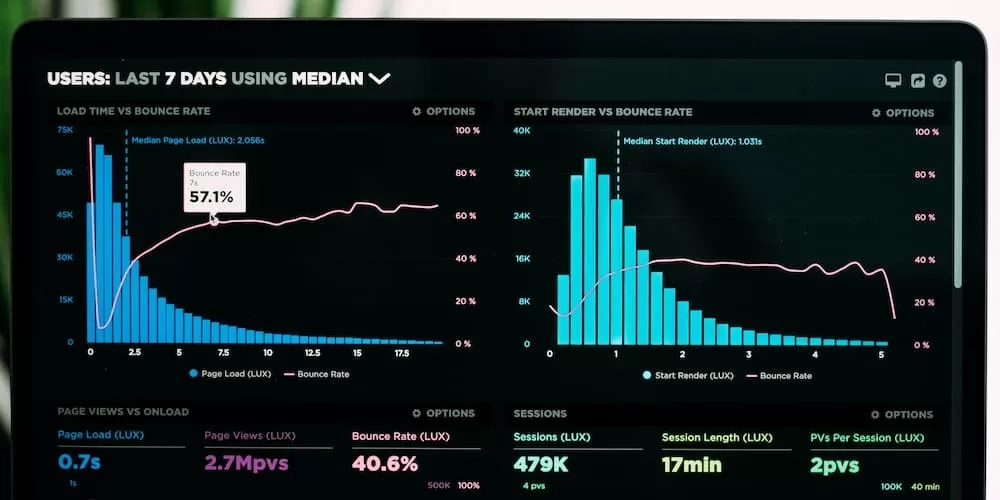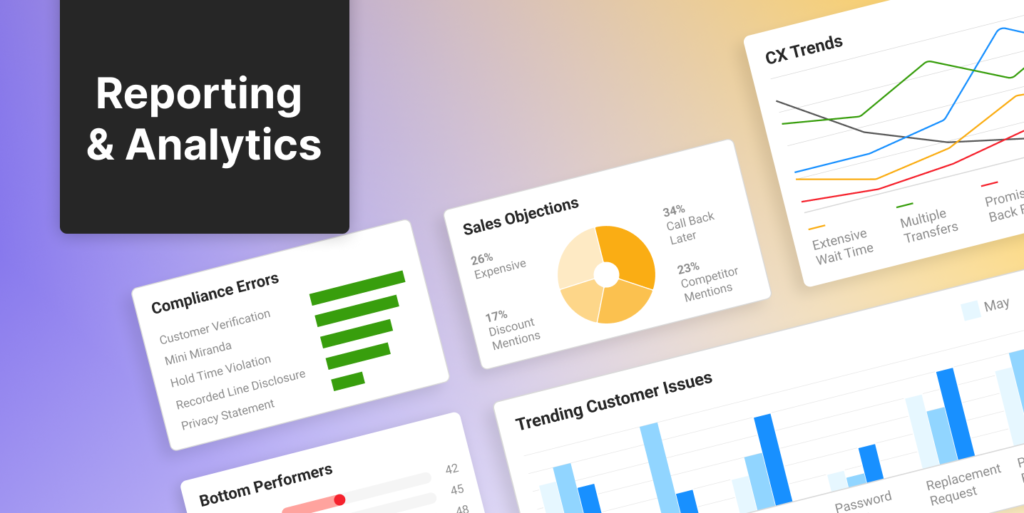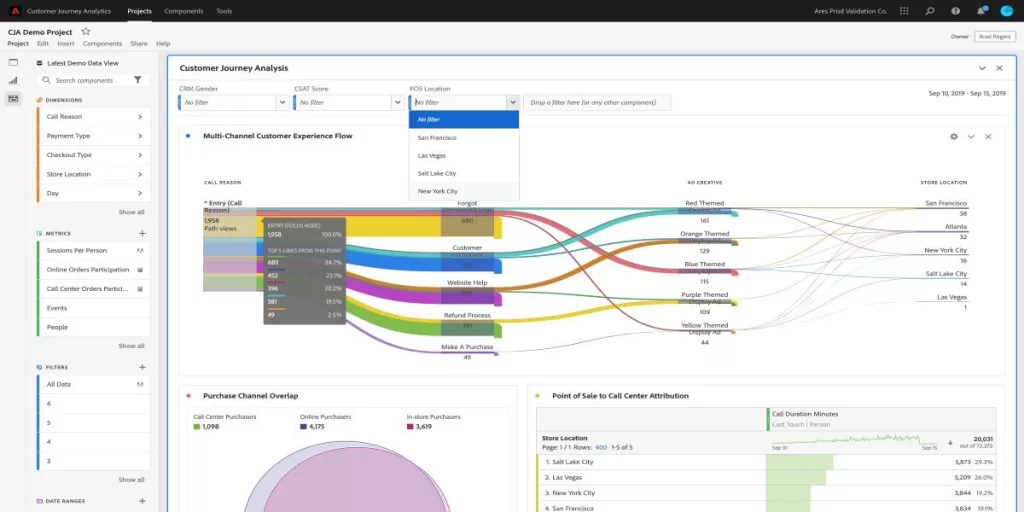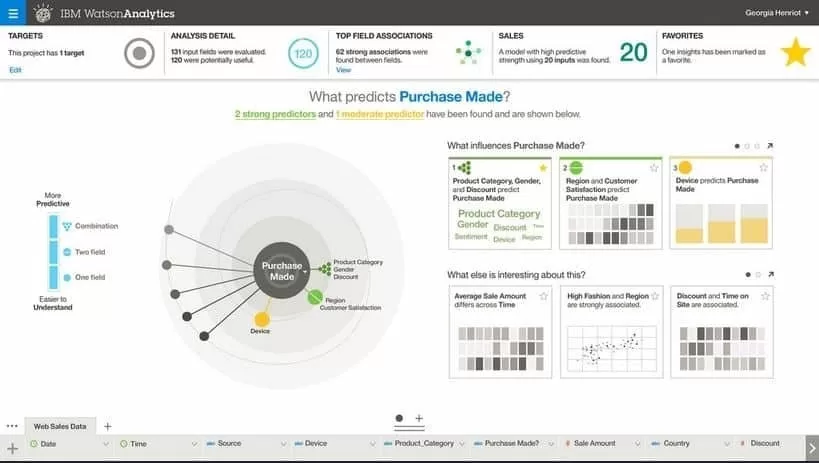
AI Website Analytics
The concept of AI website analytics pertains to the use of artificial intelligence (AI) for the automated acquisition and examination of user engagements on a website. AI website analytics refers to web analytics tools that use AI to automatically capture and analyze user interactions. AI-driven analytics solutions have the capability to amass a greater volume of data compared to conventional web analytics tools. Additionally, they have the capacity to derive insights from this data that would be arduous or unattainable via human means.
The Significance of AI Website Analytics
Conventional web analytics systems primarily monitor basic data, like page visits, bounce rate, and time spent on the website. Although these indicators may provide valuable insights into fundamental aspects of website performance, their limited scope hinders organizations from making well-informed choices about their website strategy. Website analytics is forecasted to be an $11.2B industry by 2027.

AI website analytics technologies have the potential to assist enterprises in achieving the following benefits:
Understand customer behavior
The analysis of consumer behavior may be facilitated by the use of artificial intelligence (AI). AI has the capability to comprehensively monitor and record many aspects of customer behavior, such as their browsing patterns, content consumption preferences, and engagement with different activities on a website. This data may be used to enhance the user experience, optimize conversion rates, and find untapped market prospects.
Predict customer churn
The use of artificial intelligence (AI) may be leveraged to forecast customer churn, enabling businesses to identify and anticipate which consumers are most likely to discontinue their relationship with the company. This data may be used to build focused retention strategies and mitigate client churn.
Improve website performance
Artificial intelligence (AI) may be effectively used to detect certain aspects of a website that want improvement, such as sites exhibiting high bounce rates or experiencing prolonged loading times. The provided data may be used to enhance the website’s optimization and bolster its performance.
The operational mechanisms of AI-based website analytics
AI website analytics solutions use a diverse range of machine learning methodologies for the purpose of gathering and analyzing data. However, most traditional analytics tools track relatively simple metrics (time on site, bounce rate, etc.) that fail to deliver actionable insights. The aforementioned approaches encompass:
- Natural language processing (NLP): NLP is a computational technique that may be used to derive semantic understanding from unstructured data, including but not limited to customer reviews and social media postings. This data may be used to comprehend client sentiment and discern patterns.
- Machine learning: Machine learning a computational approach, is used to discern patterns within datasets and generate predictive models. An instance of machine learning might be used to forecast the probability of consumer purchases or the likelihood of items being purchased in conjunction.
- Deep learning: Deep learning is a subfield of machine learning that uses artificial neural networks as a means to acquire knowledge from data. Deep learning models have the capability to execute intricate tasks, including but not limited to image identification and natural language processing.

The advantages of using artificial intelligence (AI)
According to Gartner, context-enriched analytics and AI will replace over 60% of traditional data analytics models by 2025. AI website analytics has many advantages compared to conventional web analytics technologies, such as:
More accurate insights
AI-powered analytics solutions have the capability to provide more precise insights from data by taking into consideration the contextual factors that influenced the generation of the data. An AI model may be used to comprehend the reasons behind a customer’s decision to depart their purchasing cart or the factors contributing to a certain webpage’s elevated bounce rate.
Actionable insights
AI-powered analytics solutions have the capability to offer actionable insights, which can be used by organizations to enhance their website performance and customer experience. One potential use of an AI model is to provide personalized product recommendations to clients by analyzing their browsing history. Additionally, AI models may be utilized to discover and highlight sections of a website that need enhancements or modifications.
Reduced workload
The use of AI-powered analytics solutions has the potential to alleviate the burden of workload by automating the processes involved in data collection and analysis. This enables organizations to allocate their resources toward other essential activities.
AI Website Analytics Tool Examples
There exists a variety of website analytics solutions that are driven by artificial intelligence (AI), which include:
- Google Analytics Intelligence: Google Analytics Intelligence refers to a collection of artificial intelligence-driven functionalities inside Google Analytics, which enable the generation of valuable insights from the data gathered.

- Adobe Analytics Sensei: Adobe Analytics Sensei refers to a collection of artificial intelligence (AI)-driven tools designed specifically for the purpose of data analysis inside Adobe Analytics.

- IBM Watson Analytics: IBM Watson Analytics is a cloud-based artificial intelligence (AI) platform designed for the purpose of analyzing data from diverse sources.

Context-Enriched Analytics: The Next Generation of Artificial Intelligence Website Analytics
Context-enriched analytics refers to a data analytics approach that uses artificial intelligence (AI) to evaluate data, taking into consideration the specific environment in which the data was created. This implies that analytics solutions enhanced with contextual information have the capability to consider several elements, like the user’s geographical location, device kind, and browsing history, in order to provide more comprehensive insights.
The field of context-enriched analytics is now in its nascent phase of advancement; yet, it has the capability to fundamentally transform the manner in which enterprises conduct analysis of their website data. One potential use of a context-enriched analytics tool is its utilization in various scenarios.
- Learn how consumers from various locales engage with a website.
- Determine which gadgets are the most popular among clients.
- Keep track of how clients’ browsing habits vary over time.
- detect consumer behavior patterns that would be difficult or impossible to detect manually.

A context-enriched analytics platform for product search may find trends by analyzing the activity of various users. For example, if a user adds product X to their basket and then searches for product Y, the platform may determine if other customers have done the same. If this is the case, the platform may deduce that product Y is a complement to product X and promote it to other consumers who are watching product X.
Analytics with context for product search
- Patterns are identified by analyzing user activity.
- Based on user activity, it infers complementary items.
- Users are recommended complimentary items.
Example:
- The user adds product X to their shopping basket and then looks for product Y.
- The platform examines if other users have shown the same behavior.
- If this is the case, the platform deduces that product Y is complementary to product X.
- The platform suggests product Y to other users who are looking at product X.
Conclusion
AI website analytics is a robust technology that has the capability to assist firms in enhancing their website performance, augmenting client experience, and ultimately improving their financial outcomes. With the ongoing advancement of AI technology, it is anticipated that context-enriched analytics will emerge as the subsequent iteration of AI website analytics.















